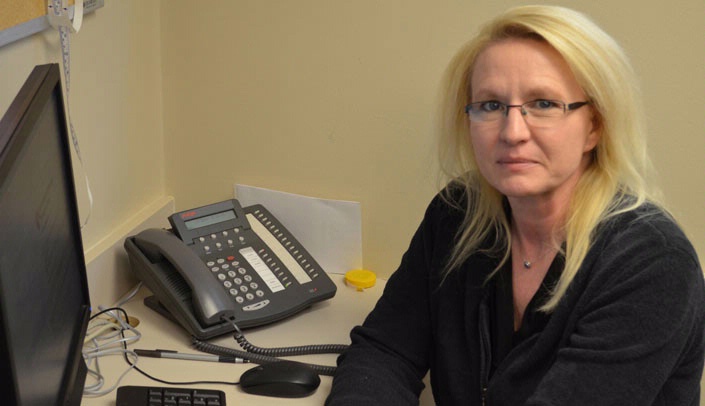Ann Mangiameli, an attorney from Legal Aid Nebraska, has been coming to the Munroe-Meyer Institute’s Diagnostic Center on Saddle Creek Road once a week for the last several months.
She’s not seeking treatment herself. The visits are part of a partnership between Legal Aid Nebraska and MMI designed to provide legal consultation to families with children who have autism and related disabilities if the families are facing what Mangiameli calls “health-harming legal needs.” The program is funded by a grant from Autism Action Partnership.
Hotline information
In addition to Mangiameli’s weekly availability, Legal Aid Nebraska’s Autism Legal Hotline, at 844-535-3533, is open from 9 a.m.-noon and 1-3 p.m. Monday through Thursday and 9 a.m.-noon on Fridays.
A family facing eviction because of a child’s diagnosis-related behavior, Mangiameli said, will face stress.
“They are going to be focusing on that rather than focusing on whatever treatment the child is getting here,” she said. “Anything we can link to, whether a stressor or a direct (barrier to) allowing them to get treatment, is something we would assist with.
“We consider any sort of legal question or need that is somehow affecting the medical treatment they’re receiving,” she said. “We consider that stress, as well.”
Mangiameli is the manager of Legal Aid Nebraska’s medical-legal partnerships, which are based in all the major hospitals in the Omaha area.
“I spend a great deal of my time out trying to educate medical staff,” she said. “When they’re listening to parents, and parents may mention a landlord conflict, that it will trigger the staff member to say, ‘Did you know that you can talk to Legal Aid about that?’
“Sometimes people don’t realize that what they have is a legal problem.”
One purpose of the medical-legal partnership, though, is to solve a problem before it becomes a legal matter. To aid in this, Legal Aid also has instituted an “autism hotline” for parents with legal questions.
“The reason that we do the on-site visits is so that we can see patients when they’re here, it’s less of a stress for them than to have to come to our office,” Mangiameli said.
“Children with autism spectrum disorder and related neurodevelopmental disabilities face a variety of legal issues that can negatively impact their health and overall functioning,” said Cindy Ellis, M.D., director of developmental medicine at MMI. “This partnership expands our interprofessional health care team and enhances our ability to provide comprehensive patient care that more effectively meets the needs of the whole patient.”
